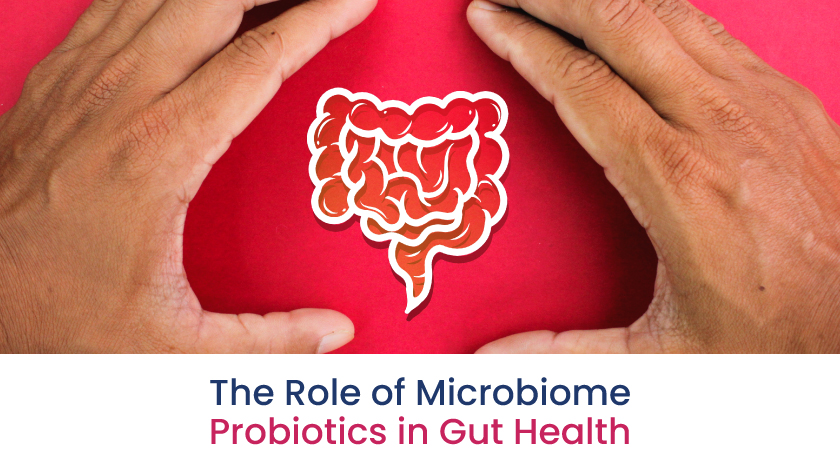In the intricate tapestry of our bodies, a hidden community thrives – the microbiome. This diverse ecosystem of trillions of microbes plays a pivotal role in maintaining our overall health, with a special emphasis on gut function. Among the myriad components influencing the microbiome, one key player stands out – microbiome probiotics. Let’s delve into the fascinating world of these beneficial microorganisms and explore their profound impact on gut health.
Understanding the Microbiome:
- The Gut Microbiome Unveiled: The gut microbiome is a bustling community of bacteria, fungi, viruses, and other microorganisms residing in our digestive tract. This dynamic ecosystem contributes to various physiological processes, including digestion, nutrient absorption, and immune system regulation.
- Microbiome and Gut Health: A balanced and diverse gut microbiome is crucial for maintaining overall well-being. It aids in digestion, helps protect against harmful pathogens, and influences the body’s immune response. An imbalance in the microbiome, known as dysbiosis, is linked to a range of health issues, including digestive disorders, autoimmune conditions, and even mental health challenges.
Microbiome Probiotics: Guardians of Gut Harmony
- Defining Microbiome Probiotics: Microbiome probiotics are specific strains of beneficial bacteria that contribute to the health and balance of the gut microbiome. These live microorganisms, when consumed in adequate amounts, confer various health benefits by positively influencing the composition and function of the gut microbiota.
- Roles and Benefits of Microbiome Probiotics:
- Restoration of Balance: Microbiome probiotics work to restore and maintain a diverse and balanced gut microbiome. They help counteract the effects of modern lifestyles, such as antibiotic use and processed diets, which can disrupt microbial harmony.
- Digestive Wellness: Probiotics contribute to optimal digestion by assisting in the breakdown of complex carbohydrates and the absorption of nutrients. They may also alleviate common digestive issues like bloating, gas, and irritable bowel syndrome (IBS).
- Immune System Support: The gut is a hub of immune activity, and microbiome probiotics actively participate in regulating immune responses. They help fortify the gut barrier and modulate immune cells, enhancing the body’s defense against infections.
- Mental Health Connection: Emerging research suggests a strong link between the gut and the brain, known as the gut-brain axis. Microbiome probiotics may play a role in influencing mental health by contributing to the communication network between the gut and the brain.
Incorporating Microbiome Probiotics into Your Lifestyle:
- Dietary Sources:
- Fermented Foods: Incorporate naturally fermented foods into your diet, such as yogurt, kefir, sauerkraut, kimchi, and miso. These foods are rich in naturally occurring microbiome probiotics.
- Probiotic Supplements:
- High-Quality Supplements: If dietary sources are insufficient, consider high-quality probiotic supplements. Look for products containing a diverse range of probiotic strains, ensuring comprehensive support for your gut microbiome.
- Lifestyle Choices:
- Fiber-Rich Diet: A diet rich in fiber supports the growth and activity of probiotics. Whole grains, fruits, vegetables, and legumes are excellent sources of prebiotic fibers that nourish probiotics.
- Limit Antibiotic Use: Use antibiotics judiciously, as they can disrupt the balance of the gut microbiome. If prescribed antibiotics, consider probiotic supplementation during and after the course to support microbial recovery.
Microbiome probiotics serve as guardians of gut harmony, actively contributing to the delicate balance within our bodies. By understanding their roles and incorporating probiotic-rich foods or supplements into our lifestyles, we can nurture a flourishing gut microbiome. This proactive approach to gut health not only supports digestion but also lays the foundation for overall well-being, emphasizing the profound connection between the health of our microbiome and the health of the entire body.





